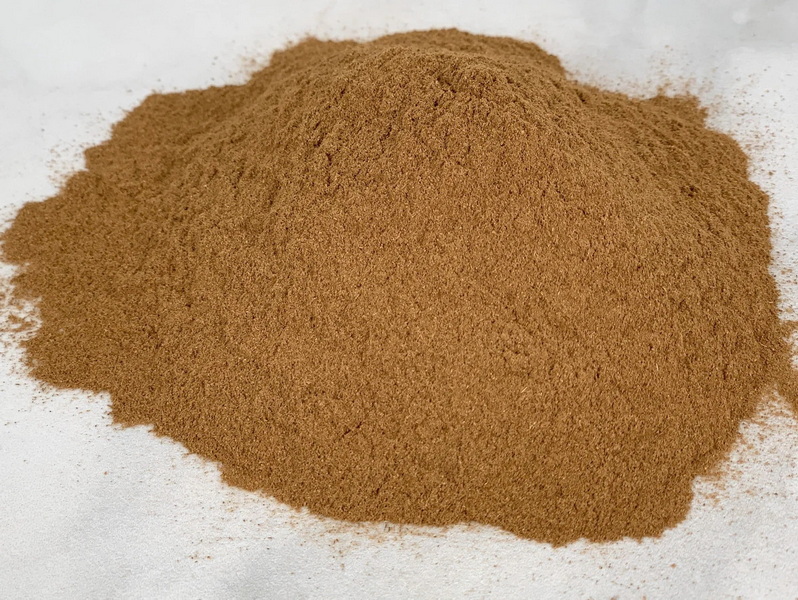Content Menu
● Introduction to Cinnamon
>> Cinnamon Varieties
● Solaray Cinnamon Bark Extract 300 Mg
>> Organic Status
>> Benefits of Cinnamon Bark Extract
● Health Benefits of Cinnamon
>> Antioxidant Properties
>> Anti-Inflammatory Effects
>> Digestive Health
>> Cancer Prevention
>> Dental Health
● Potential Side Effects
● How to Use Cinnamon Safely
● Cinnamon in Traditional Medicine
>> Cinnamon in Cooking
● Cinnamon and Cognitive Function
● Cinnamon and Skin Health
● Cinnamon and Hair Care
● Cinnamon and Oral Health
● Conclusion
● FAQs
>> 1. What are the main health benefits of cinnamon?
>> 2. Is Solaray Cinnamon Bark Extract 300 Mg suitable for everyone?
>> 3. What is the difference between Ceylon and Cassia cinnamon?
>> 4. Can cinnamon help with weight loss?
>> 5. How much cinnamon is safe to consume daily?
● Citations:
Cinnamon, a spice derived from the inner bark of the cinnamon tree, has been widely recognized for its culinary and medicinal properties. Among various cinnamon products, Solaray Cinnamon Bark Extract 300 Mg is a popular choice for those seeking to harness the health benefits of cinnamon in a concentrated form. This article will delve into the details of Solaray Cinnamon Bark Extract, its organic status, and the broader health benefits of cinnamon.

Introduction to Cinnamon
Cinnamon is not only a flavorful addition to many dishes but also a rich source of antioxidants and other beneficial compounds. It is primarily available in two forms: Ceylon and Cassia. Ceylon cinnamon is considered more potent and is often preferred for its health benefits, while Cassia is more commonly used due to its affordability and availability.
Cinnamon Varieties
- Ceylon Cinnamon: Known for its lighter color and sweeter taste, Ceylon cinnamon is considered the "true cinnamon" and is more expensive than Cassia. It contains less coumarin, a compound that can be toxic in high doses.
- Cassia Cinnamon: This is the more commonly used variety, known for its darker color and stronger flavor. It is less expensive but contains higher levels of coumarin.
Solaray Cinnamon Bark Extract 300 Mg
Solaray is a well-known brand in the supplement industry, offering a range of herbal extracts, including cinnamon bark extract. The Solaray Cinnamon Bark Extract 300 Mg is a dietary supplement designed to provide the benefits of cinnamon in a concentrated form.
Organic Status
To determine if Solaray Cinnamon Bark Extract 300 Mg is organic, one would need to check the product label or the manufacturer's website for organic certification. Organic products are grown without synthetic pesticides, herbicides, or fertilizers, which aligns with the preferences of many health-conscious consumers.
Benefits of Cinnamon Bark Extract
Cinnamon bark extract is rich in antioxidants and has been associated with several health benefits:
1. Blood Sugar Control: Cinnamon has been shown to help manage blood sugar levels by improving insulin sensitivity. Studies suggest that it can lower fasting blood sugar levels and improve hemoglobin A1c, a marker of long-term blood sugar control[1][4].
2. Anti-Inflammatory Effects: The anti-inflammatory properties of cinnamon can help reduce inflammation, which is linked to various chronic diseases[1][2].
3. Heart Health: Cinnamon may help lower cholesterol levels and reduce the risk of heart disease by decreasing triglycerides and LDL cholesterol[2][3].
4. Antimicrobial Properties: Cinnamon has been used to combat bacterial and fungal infections due to its antimicrobial properties[1][5].
5. Cognitive Health: Some studies suggest that cinnamon may help prevent Alzheimer's disease by reducing amyloid plaques in the brain[5].
Health Benefits of Cinnamon
Cinnamon is renowned for its multifaceted health benefits, ranging from digestive health to potential cancer prevention. Here are some of the key benefits:
Antioxidant Properties
Cinnamon is rich in antioxidants, which help protect the body from oxidative stress and inflammation. These antioxidants include polyphenols and cinnamaldehyde, which enhance the body's existing antioxidant defenses[2][4].
Anti-Inflammatory Effects
The anti-inflammatory compounds in cinnamon can reduce inflammation, which is associated with chronic diseases like arthritis and heart disease. This effect is crucial in preventing the onset of chronic conditions[1][2].
Digestive Health
Cinnamon may help alleviate digestive issues such as bloating and gas by reducing inflammation in the gut. It acts as a prebiotic, supporting the growth of beneficial bacteria while suppressing harmful ones[2].
Cancer Prevention
Some studies suggest that cinnamon may have anti-cancer properties by inhibiting the formation of new blood vessels that feed tumors (angiogenesis)[1][5].
Dental Health
Traditionally, cinnamon has been used to promote dental hygiene due to its antimicrobial properties, which can help prevent tooth decay[1].

Potential Side Effects
While cinnamon is generally safe, high doses can cause side effects such as:
- Liver Damage: Excessive consumption of cinnamon, especially Cassia, can lead to liver problems due to its high coumarin content.
- Low Blood Sugar: Cinnamon can lower blood sugar levels, which may be problematic for those with diabetes.
How to Use Cinnamon Safely
To maximize the benefits of cinnamon while minimizing risks, follow these guidelines:
1. Dosage: The recommended daily intake of cinnamon varies, but generally, 1/2 to 1 teaspoon (2-4 grams) is considered safe. Higher doses may be toxic[1].
2. Type of Cinnamon: Prefer Ceylon cinnamon over Cassia due to its lower coumarin content.
3. Consult a Healthcare Provider: Before starting any supplement regimen, especially if you have underlying health conditions.
Cinnamon in Traditional Medicine
Cinnamon has been used for centuries in traditional medicine across various cultures. Its antimicrobial properties make it effective against a range of pathogens, including bacteria, viruses, and fungi. In Ayurvedic medicine, cinnamon is used to treat digestive issues and improve circulation.
Cinnamon in Cooking
Beyond its medicinal uses, cinnamon is a versatile spice in cooking. It adds flavor to both sweet and savory dishes, from baked goods like cinnamon rolls to savory dishes like stews and curries. The aroma of cinnamon is also used in perfumes and fragrances.
Cinnamon and Cognitive Function
Some studies suggest that cinnamon may have neuroprotective effects, potentially aiding in the prevention of neurodegenerative diseases like Alzheimer's and Parkinson's. The active compound cinnamaldehyde is thought to play a role in these protective effects by reducing oxidative stress and inflammation in the brain[5].
Cinnamon and Skin Health
Cinnamon's antimicrobial properties can also benefit skin health by reducing acne and other skin infections. However, it should be used with caution as it can cause skin irritation in some individuals.
Cinnamon and Hair Care
In some traditional practices, cinnamon is used to promote hair growth and improve scalp health. The antioxidants in cinnamon may help reduce oxidative stress on the scalp, potentially leading to healthier hair.
Cinnamon and Oral Health
Cinnamon's antimicrobial properties make it effective in reducing bad breath and preventing tooth decay. It is often used in mouthwashes and toothpaste for its ability to combat bacteria in the mouth.
Conclusion
Solaray Cinnamon Bark Extract 300 Mg offers a convenient way to incorporate the health benefits of cinnamon into one's diet. However, whether it is organic depends on the specific product certification. Cinnamon, in general, is a valuable spice with numerous health benefits, from improving blood sugar control to reducing inflammation. As with any supplement, it is essential to consult with a healthcare provider before adding it to your regimen.
Cinnamon is not only a flavorful spice but also a multifaceted ingredient with a wide range of health benefits. From its antioxidant and anti-inflammatory properties to its antimicrobial effects, cinnamon is a valuable addition to both culinary and medicinal practices. Whether used as a supplement like Solaray Cinnamon Bark Extract 300 Mg or incorporated into daily cooking, cinnamon offers numerous advantages for overall health and well-being.

FAQs
1. What are the main health benefits of cinnamon?
Cinnamon is known for its antioxidant, anti-inflammatory, and antimicrobial properties. It may help manage blood sugar levels, reduce inflammation, and support heart health.
2. Is Solaray Cinnamon Bark Extract 300 Mg suitable for everyone?
While generally safe, cinnamon supplements may not be suitable for everyone, especially those with diabetes or liver issues. It is advisable to consult a healthcare provider before use.
3. What is the difference between Ceylon and Cassia cinnamon?
Ceylon cinnamon is considered more potent and contains less coumarin, making it safer for consumption. Cassia cinnamon is more commonly used but has higher coumarin levels.
4. Can cinnamon help with weight loss?
There is limited evidence that cinnamon directly aids in weight loss. However, it may help improve metabolic health, which could indirectly support weight management.
5. How much cinnamon is safe to consume daily?
The recommended daily intake of cinnamon varies, but generally, 1/2 to 1 teaspoon (2-4 grams) is considered safe. Higher doses may be toxic.
Citations:
[1] https://www.webmd.com/diet/supplement-guide-cinnamon
[2] https://daily-harvest.com/blogs/ingredients/7-health-benefits-of-cinnamon
[3] https://examine.com/supplements/cinnamon/
[4] https://www.healthline.com/nutrition/10-proven-benefits-of-cinnamon
[5] https://pmc.ncbi.nlm.nih.gov/articles/PMC4003790/
[6] https://www.medicalnewstoday.com/articles/266069
[7] https://www.health.com/cinnamon-benefits-7546804
[8] https://www.siloamhospitals.com/en/informasi-siloam/artikel/9-health-benefits-of-cinnamon-its-nutrient-content






























